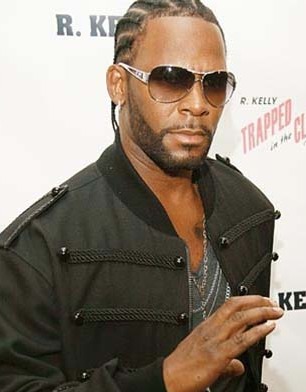R. Kelly has just been found guilty of all the charges against him. According to this CBS report, “Kelly, 54, was accused by multiple witnesses of targeting, grooming and exploiting young women and men ‘for his own sexual gratification’ and running a ‘sex cult’ by trafficking people across state lines. He also allegedly bribed a government worker to help him marry late R&B singer Aaliyah when she was 15 years old.”
In the wake of #MeToo, it was unlikely that the jury would have—or could have—reached any other verdict. The news today is filled with statements from everyone speaking about the “justice” that his many victims have finally been able to get.
I’ve been working for a while on a long piece about the R. Kelly story, following the coverage of the singer from several years ago and centering the two-part documentary Surviving R. Kelly, which is widely credited with finally turning the tide of public opinion against him.
But I offer these few thoughts for now:
The verdict is being claimed by #MeToo feminists as a resounding victory. Much has been and will be made of the many survivors who came forward and spoke of their experiences—and those accounts have been wrenching, for them and for those who listened.
Kelly is being painted as a predator, and he clearly is: a grown man who deliberately sought out very young girls in places like the McDonalds restaurant he frequented with his cohort. But focusing on Kelly as the predator ignores the fact that there was an entire social and cultural and economic system of predation that allowed for the exploitation of his victims. Kelly did what he did not over the course of a year or two but for over two decades and even the documentary has to acknowledge that much of what he did happened in open view. Everyone knew what was happening.
I live near Kenwood Academy High School, known as a high-performing institution, which Kelly began attending in 1980 and where the famed music teacher Lena McLin found and encouraged his musical talent. Kelly never graduated, and by most accounts he left with difficulty in reading and math. Walk about twenty minutes to the south from Kenwood and you’ll end up at the University of Chicago Laboratory Schools, known in the area as Lab or Lab School, one of the country’s most prestigious private institutions. Nearly half of the students have parents who are faculty members at the University of Chicago, an institution known for its demanding curricula and whose professors demand the very best education for their children at Lab. Lab is not exactly racially diverse and Black students have complained about the culture of racism there.
R. Kelly was allowed, long after he achieved superstardom and for reasons no one can fully explain, to return to Kenwood even after he left, to “date” teens still attending the school. As this piece by ShaRhonda Knott-Dawson points out, Black girls aren’t considered children and are seen as disposable. Kelly’s predatory behaviour was normalised and occluded by his celebrity.
R. Kelly would never have been allowed to even approach the highly monitored and tightly surveilled Lab School, without a real reason to enter. Hyde Park is one of the more racially diverse neighbourhoods in Chicago, a city so racist that it functionally operates like a plantation. There are strict lines drawn between white and other neighbourhoods, and even public transportation is carefully designed to make it impossible for people from the Black and brown south and west sides to make it to the mostly white north sides. Racial and class lines are deeply inscribed even in Hyde Park and someone like Kelly, without the class privilege of a faculty parent or the racial privilege of whiteness, wouldn’t have felt or been able to enter Lab as easily as he caroused about Kenwood.
Many of Kelly’s victims are drawn from his class and racial background. Even attending a school as prestigious as Kenwood, they were still caught in a web of economic and cultural circumstances that made it impossible to conceive of the kind of life that their Lab School counterparts are free to imagine (to be clear, Kenwood is mixed in terms of the class identities of its students and Kelly clearly preyed upon a very particular set).
I note these facts simply to point out that indicting R. Kelly does nothing to erase the systemic conditions of racism, economic hardship, and a lack of opportunity that existed around him (and still exist). The immense opportunities and endless hope that exist for some in a racially mixed neighbourhood are closed off to others just minutes away. For several young Black women, R. Kelly presented a way out, and few adults bothered to step in and protect them. The system that created R. Kelly—that left him functionally illiterate and disempowered—also made it possible for him to gather immense fame and fortune, the sort that gave him easy access to others who were similarly marginalised but more vulnerable to him.
The verdict allows us to pretend that Kelly is simply a monstrous aberration. But we, soaked in systems of inequality and prejudice, created R. Kelly and we created the conditions that allowed him to do what he did. Celebrating the verdict as a victory allows us to forget that we failed R. Kelly, and we failed those hurt by him.
***
Don’t plagiarise any of this, in any way. Read and memorise “On Plagiarism.” There’s more forthcoming, as I point out in “The Plagiarism Papers.” I have used legal resources to punish and prevent plagiarism, and I am ruthless and persistent. If you’d like to support me, please donate and/or subscribe, or get me something from my wish list. Thank you.

